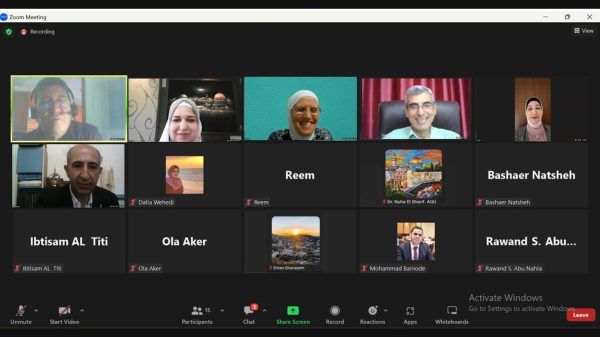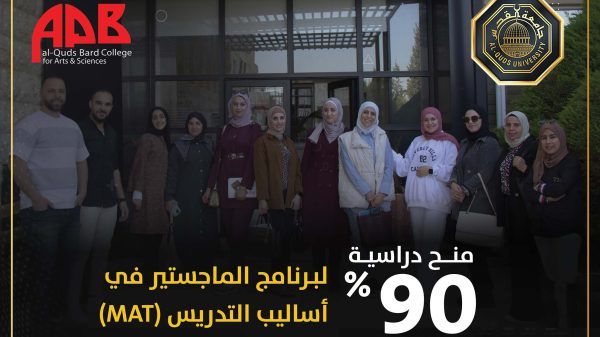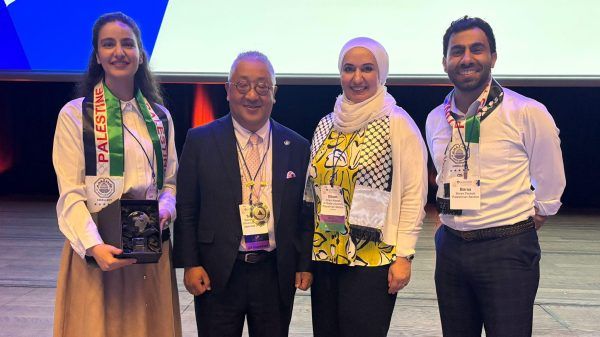
The full text of Nusseibeh's speech at the Israel Academy of Sciences and Humanities on Academic Freedom, that was delivered yesterday July 4th in honor of Professor Menahem Yaari.
FREEDOM
One advantage of getting older- I am sure you will agree with me, Menahem- is that the slices of reality one begins to see somehow become longer.
Mme Chair, Ladies and Gentlemen,
My first encounter with Menahem Yaari took place in 1981. The venue: my home -at the time on the Via Dolorosa, literally clasping one end of the Ecce Homo arch, in the Old City. The occasion: Military Order 854. The task: the report Professor Yaari was compiling with some of his colleagues on that Order, and on Palestinian reactions to it. I was at the time the elected President of the Faculty Association at Birzeit University, and in that capacity, one of the outspoken critics of that Order.
MO 854, like others preceding it all the way back to June of 1967, and others that followed it, was issued by the Military Governor of the West Bank and Gaza, territory that fell under Israel's rule and responsibility after the June war. Different orders, proceeding from Israel's Ministry of Defense, and ultimately deriving a "legitimation cover" from Israel's own Legislative Authority, the Knesset, dealt with different aspects of Palestinian life in this territory. Palestinians were, literally, subjects to these Orders. Number 854 in particular dealt with the burgeoning Higher Education activities of Palestinians living in this territory, which had begun to develop after the June war. Drawing upon the previously existing Jordanian Law of Education of 1964, conceived at the time of its promulgation to apply to the schooling system under Government jurisdiction, MO 854 simply declared, citing the existence of a legal lacuna as justification, that this law shall be extended so as to cover the newly-developed Higher Education activities of Palestinians, including all matters relating to their institutions of higher learning.
An innocent, cursory look at 854 cannot possibly explain to an outside observer the magnitude of the resulting wave of unrest that followed in its wake, sufficient at the time for some to call that wave of unrest a mini-intifada. Applied to universities, 854 (surreptitiously drawing on the powers accorded to Government officials by the said Education law) meant theoretically at least that the Military Governor could henceforth hold the reins in and appropriate all matters relating to university life, from accepting students, to employing faculty, to approving academic-curricula, course descriptions, or reading lists. In a word, 854 meant nailing the lid down for good on what one normally understands by academic freedom.
MO 854 was not an "innocent" measure taken by an education officer in the Military Government wishing to better organize Palestinian Higher Education. "Palestinian Academic freedom", translated into the Military Government's political Hebrew of the time, meant "the breeding ground of Palestinian nationalism". Suppressing that genre of breed, or at least containing it -that is, making sure it does not fully bloat into a potentially existential threat, meaning at the time, the demand for an independent nation-state- was regarded as a primary political imperative. Acting against Palestinian academic freedom by the Israeli Authority was therefore less an act against academic freedom as such as it was an integral part of an overall political effort to nip nationalist Palestinian sentiment in the area under its rule in the bud, and to destroy the PLO itself, the embodiment of this sentiment, headquartered at the time in Lebanon. Thus, Israel's first invasion of Lebanon in June of 1982. To complement that attempt at destroying the PLO, and its perceived nationalist manifestations in the area under Israel's rule, and as part of an attempt to fashion Palestinian destiny in accordance with Israel's "containment" designs, Israeli policy-makers conceived at the time of nominally dismantling the Military Government itself, and of replacing it by a softer-sounding "Civil Administration". The plan, the brainchild of Israeli academics working close to Minister Sharon, was that this newly-named creature would be able -in the wake of the destruction of the PLO and its local minions- to usher in a new era, one in which a new breed of agreeable rural Palestinian leaders, "clean" of that overly-nationalist ambition thought to be typically associated with city and intellectual elites exclusively, would rise to the forefront of Palestinian politics, and would manage to run an autonomy subsisting under the benign but remote rule and guidance of the Israeli Government. Appropriately, the new Palestinian leadership would have the name of "the village leagues". If in political jargon nationalist claims could only be accommodated through statehood, so common wisdom had it, autonomy would surely better suit the large ethnic minority newly ingested, and now under Israel's rule.
Little wonder, then, that a mini-intifada was provoked at the time against Israeli designs, partly "run" by the Palestinian version of Israel's Academia -the university student population. In effect, 854 was scrapped, the Village Leagues -the aspired-for political baby of the Civil Administration- were debunked. The PLO and the nationalist movement came out stronger than before. In a sense, the exact converse of the planned outcome was produced, and, instead of limited autonomy run by a league of thankful rural leaders, the stage was set for the major intifada of 1987, which was, above all, a nationalist cry for freedom, and a harbinger of the (at the time, dreaded-by-Israel) two-state solution. Its main foot-soldiers, I should also add, were drawn from none other but the very rural population whose members, "experts" assumed, had not been "stung" by the nationalist bug.
At this point, I wouldn't in the least be offended if someone were ironically to point out that, even so, looking at today's scenery, long after the dust of those long years has settled down, one surely cannot get a better proof for the rephrased wisdom that a rose by any other name is still a rose. Indeed, it may be that such wisdom beckons us to think anew of the political prospects now laid out before us.
In spite of my remarks so far, I am not here trying to establish a historic narrative of the past 30 years. Rather, I am trying to raise two -I believe relevant to this forum- questions or issues, one having to do with how academic freedom ties up with the more general issue of freedom; and the other having to do with whether, and how academics tie up to this burning issue.
However, in order to tie up doing this with today's event, let me jump ahead a few years, in fact, to 2003, when Professor Yaari and I participated in drafting the mission statement of IPSO, the Israeli-Palestinian Science Organization, of which we are both co-founders: here Professor Yaari was adamant, if I recall correctly, to keep IPSO out of "politics", the latter designating anything and everything other than building bridges of good-will between Israelis and Palestinians, and seeking peace. The Academia, in his view, and probably in the view of many others, and perhaps, in one sense and in some cases at least, correctly, had to be kept clean of politics. Even so, both in his capacity as President of the Israel Academy of Sciences and Humanities, as well as in his capacity as a member of the governing board of IPSO, Professor Yaari saw fit, in October and then November of 2006, to participate in issuing a declaration upholding the right of academics to free movement, the so-called "Freedom of Movement Statement" -a reference at the time to the restrictions -through various Israeli mechanisms- imposed on the movement of Palestinian students and academics. At the time, a particular story of a female student -from the Jerusalem area, and a graduate of al-Quds University- seeking to pursue a graduate program at the Hebrew University had caught the attention of the media, and so glaringly absurd were the security-based rules preventing her from doing this, that Israeli University Rectors themselves had gotten together and publicly voiced their discontent.
Not by way of consciously seeking further complications to the picture I am trying to portray before us, but by way of incorporating as much relevant data as possible into this picture in order to better appraise it, it is noteworthy that the sympathy expressed by Israel's academic establishment in the freedom of movement statement was not matched, either by that same establishment, nor by Israel's Supreme Court, when the matter of Gaza students wishing to return to their studies at Bethlehem University but being prevented from doing so by the Army came up in December 2005. The case was brought before the Supreme Court, headed by Chief Justice -and now Professor- Barak by an Israeli Human Rights Organization called "Gisha". The Supreme Court at the time upheld the State argument that "the students as a group are a high risk population because many of them..could be compelled by militants in Gaza to act for them in the West Bank". This was during the period when, prior to the invasion of Gaza, and following the Army's redeployment from it, what came to be known as the "Gaza Siege" -eventually leading to the recent freedom flotilla fiasco- had already begun.
Needless to say, movement restrictions on Palestinians have been a longstanding feature of Israel's manner of management and control of Palestinian life, as various human rights reports keep reminding us -should anyone need reminding- affecting not only movement of students and Professors, or only individuals and goods moving into and out of Gaza, or into and out of the West Bank, but also movement along roads, such as that along Road 443, whose case was recently taken to the court, or within towns and cities in the West Bank itself, as for example the demonstration two weeks ago calling for the reopening of the closed-up commercial street in downtown Hebron reminds us, or the one calling for the reopening of the Ramallah-Beitin road the following day. Indeed, hardly anyone of us who is conscious is not conscious of that multitudinous maze of roadblocks, barriers, walls, borders, &c., defining the daily lives of Palestinians, and restricting their freedom of movement.
I remember that as a young boy when growing up in East Jerusalem while this was still under Jordanian rule one of the general arguments we at school kept finding ourselves heatedly engaged in was that over freedom. Whenever invoked during those heated debates, the statement "Your freedom ends where that of the others begin", always magically signalled the end of the discussion, almost like a school-bell solemnly announcing the end of class. It fell as indisputably true upon our ears as saying one equals one. What took me at any rate a long time coming to realize was that the trick in that platitude laid less in defining where the border between two people was as in who those people were, or what they represented or stood for. Calculations, I discovered in due course having had the dubiously good fortune of being a Palestinian, are quite different when applied to human beings than when applied to numbers. Tribal identities (or egos) -I found out- often just drown numerical values. This now brings me to the heart of what I wish to say this evening, which boils down to being an appeal for involving the good side of academia in politics, before the bad side gets the better of us all.
Resisting MO 854, as the late Isaiah Berlin (whom I should publicly thank in this audience for having signed a public letter on my behalf many years ago protesting my internment in Ramleh jail) would probably have agreed to define it, was a classic case of seeking freedom in its negative sense -as a "freedom from". In this particular case, what the Palestinian academia sought was the lifting of restrictions on their academic activity. However, as I noted earlier, a survey of Palestinian reality over the years will unveil for those who care to look a thick forest of different types of restrictions, on building, on residing, on returning, on moving, on digging wells, on planting, on working, on travelling, etc. Quite clearly, from a Palestinian perspective, all of these varieties of restrictions are of a feather, to be blind to which -to further extend the use of this image- would be like burying one's head in the sand -which even ostriches, I found out, do not do. As I tried to show, these restrictions are certainly conceived from the opposite- that is, Israeli side in exactly this manner, or as part of an overall policy towards Palestinians, which we can perhaps least offensively describe as a policy of "rule by containment". Seeking to lift these restrictions by the party being subjected to them could then well be understood as a precondition for some form or another of self-fulfillment, or self-realization -what Berlin might have described as a state of freedom in its positive sense, or a "freedom to". In the Palestinian case, a vehicle for achieving this might well have been self-determination in the classic sense, or a State having borders somehow deriving their legitimacy from some kind of international consensus, or resolution. Whether this is any longer possible is not at all clear. Whether it is in any case the best option given the slowly unfolding facts in the larger picture is even less clear. Meantime, however, the underlying issue of Israeli rule over Palestinians will not disappear. So here we have a straightforward case of a tilting scale -where an ego's weight (or strength) counts more than its numerical value. And either, if one wished to stick to believing in that purported truism about where freedom begins and ends one would need to shed off large chunks of one's tribal ego, so that numerical values come back to being what gets counted, and the justice scale becomes balanced again; or, remaining stuck to those large chunks one would have to simply dispense with that platitude (and justice) altogether. To choose the latter course, needless to say, would mean choosing to live in a constant state of war.
But how does all of this bear on Academia's role in politics? I must admit that, back on the Via Dolorosa in 1981, by the time Menahem Yaari paid me that visit, I had myself just begun to put two and two together, academic freedom and politics. Since then, I have been unable to separate the two. So, even as I engaged in co-founding IPSO, and in encouraging Israeli-Palestinian academic cooperation, and in opposing the calls for boycotting Israeli academics, I did this fully believing that building bridges of academic cooperation between the two sides will be as much an integral part of building a whole network across the board of such bridges between them, and of reaching an equitable peace in the process, as the converse policy of restricting academic freedom was an integral part of restricting a whole network of freedoms, and of practising through these restrictions the unjust policy of containment by one side over the other. The point is, the coin does not retain a value or remain a coin if one of its two sides somehow gets to be totally peeled off -a state of affairs that has come to hang over us like a black cloud in recent years, replacing a period of hope.
Essentially, this larger picture has remained unchanged, leaving Israeli Academia facing the same political terrain as before: the call for building academic bridges can either be part of the larger call for replacing walls by bridges -that is, for lifting all those restrictions on freedoms that together add up to being a policy of containment; or else, and as one "isolated happening", or as a bridging effort on one side of the coin only, it can only be viewed as part of the policy of containment itself -simply by virtue of portraying that containment as a normal or at any rate "livable-with" or acceptable state of affairs. But it cannot be, objectively speaking, neither. And one cannot expect the same kind of reaction towards it from the Palestinian side irrespective of which one of the two kinds it is.
Arguably, this same logic applies (i.e., should apply) to Israel's international academic network, though necessarily with a twist, given that here it is the international Academia which debates, from time to time, whether boycotting its Israeli counterpart is necessary, useful or called for at all. Quite honestly, while I can think of many situations and cases where Academia should not be made hostage to politics, yet turning a blind eye to human inequality, or to violations of human rights, cannot be one of them. Here, then, I would once again argue that a bridging policy in the academic field must be commensurate with its parallel counterpart in the political field -that the Israeli academia being reached out to must in principle at least be demonstrably opposed to a politics of rule by suppression. To argue in such circumstances in favor of abstracting from politics altogether would surely be- at the very least- like condoning this particular kind of negative politics. As my one-time colleague for a two-state solution Ami Ayalon used to tirelessly repeat, quoting Edmund Burke, and having far worse scenarios in mind than that which prompted Burke to make that statement in the first place, all it takes for evil to triumph after all is for good people to do nothing. I am not suggesting here that wars should suddenly be declared between those who hold one point of view and those who hold the other: but I do believe that the matter should at least be debated openly and objectively between Israeli academics and their international counterparts, as well as among Israeli academics themselves. After all, however one looks upon it, explains it, or justifies it; and whatever one decides to do about it, one cannot pretend that it -i.e., this state of rule by containment, of freedom's denial- does not exist.
Reaching out for the dismantlement of the "rule by containment" structure the real question for "the good" among academics, to my mind, is not to decide whether to be on the side of containment or of freedom. Rather, being on the side of freedom it is to decide whether it can still make sense to be working for a two-state solution, or whether it would make more sense to begin thinking of and working for federalist or integrationist solutions, such as those -with whatever required modifications need to be introduced- proposed a few years ago by Meron Benvinisti, Haim Hanegbi (or even Moshe Arens more recently); or many years before that by such far-sighted intellectuals as Martin Buber and Judah Magnes- a one-time rector and President of the then-fledgeling Hebrew University. A re-visit of the so-called India-led "Minority Report" -proposed at the same time as the famous 181 Partition resolution- may well also be instructive at this stage. My general point is, one cannot really expect a disabled vehicle to operate smoothly simply by tending to or even fixing its punctured tires only. Each dysfunction has to be attended to before one can expect the vehicle to become capable of moving. Perhaps this tells us that one basic collaborative job academics need to engage in then requires them to become mechanics.
Returning to the beginning, to 854, and to Professor Yaari's visit in 1981, it may be well-worth invoking, as concluding remarks, a letter received at Balliol College, Oxford, almost one year earlier, in 1980, by William Newton-Smith, then-Secretary of the Oxford Philosophy Faculty, from Prague in then-Czechoslovakia, asking if British philosophy professors could travel to that country to help teach students there who weren't allowed to travel abroad for their philosophy studies. The letter marked the beginning of what later came to be known as "the clandestine university" -a programme involving many professors from various disciplines, including such figures as Stuart Hampshire, Iris Murdoch, Tom Stoppard, Harold Pinter, and Yehudi Menuhin, some of whom began travelling to that country to deliver their lectures in cramped basements, boiler rooms and tiny apartments. Some, like Balliol's Master, Anthony Kenny, being less fortunate, were promptly kicked out of the country on arrival. Finally, in October of 1990, with the breakdown of not just walls and barriers, but of entire political structures, Vaclav Havel was able to officially inaugurate the "Jan Hus Educational Trust", the vehicle through which the so-called clandestine university was helped to function during those difficult years. In this regard, I must recognize Israeli academics who, around the same time, also reached out to help Palestinian academic institutions such as Birzeit when this was under siege by the Israeli authorities, and those who, like our friend Menahem Yaari, did not stand idly by while the noose was being tightened around our academic necks.
Clearly, in conclusion, it is not that academics, unlike everyone else of God's creatures, cannot somehow abstract themselves from their political contexts. It is more, re-phrasing Pericles, whether a real democracy can afford to have such academics in its midst.







